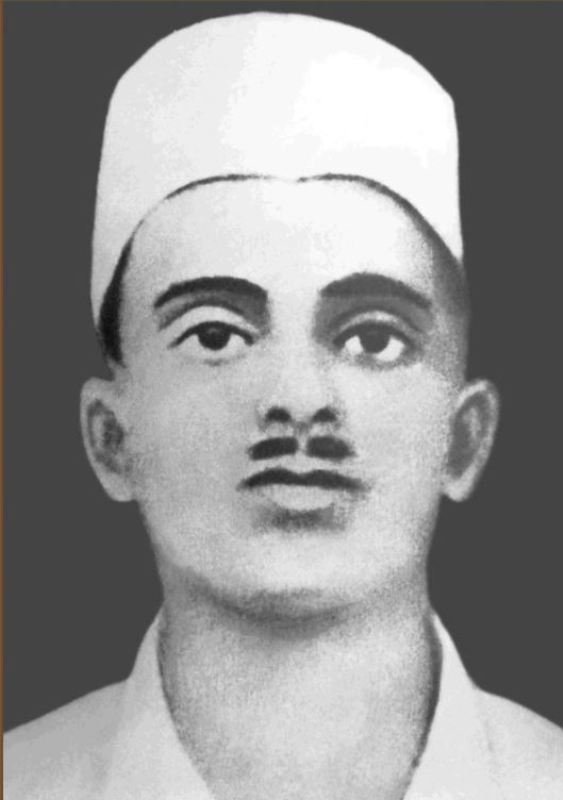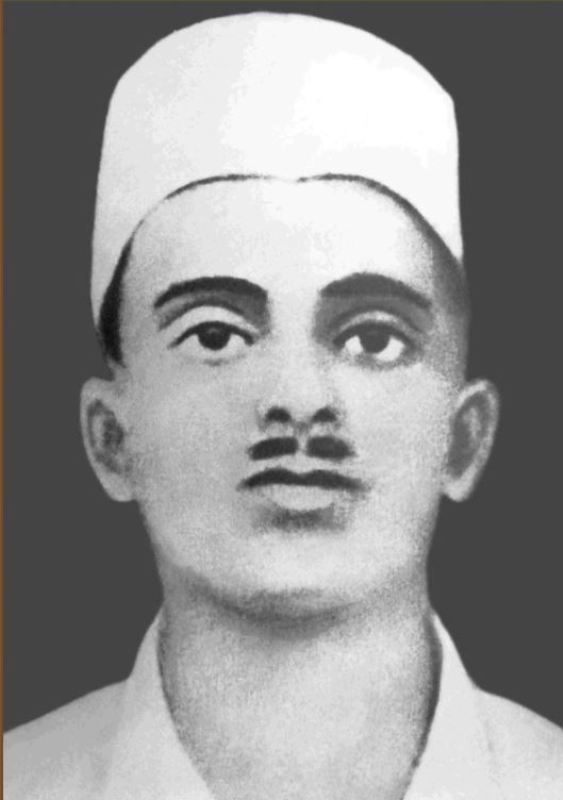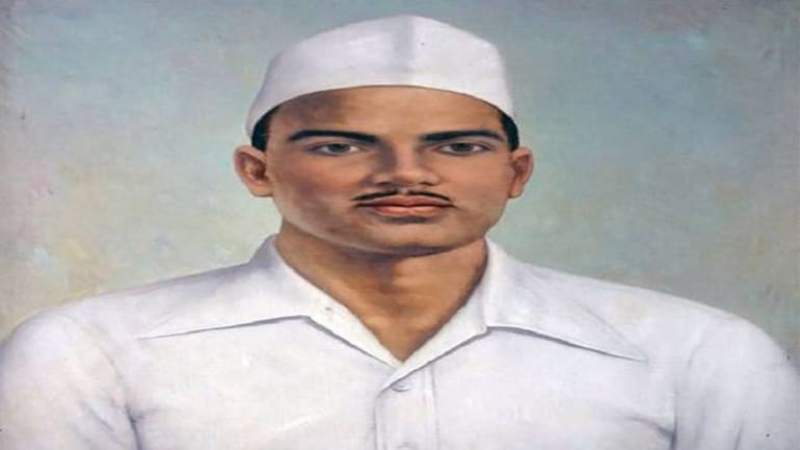Quick Info
Age: 23 Years
Marital Status: Unmarried
Father: Ramlal Thapar
About Sukhdev Thapar
-
Sukhdev Thapar was an Indian liberation fighter who was associated with the (Hindustan Socialist Republican Association) as its senior member. He took part in many anti-British activities with his friends Bhagat Singh and Rajguru during the Indian liberation struggle. At the age of 23, on March 23, 1931, he was hanged by English authorities at Lahore Central Prison.
-
Sukhdev belonged to the Punjabi Hindu community. When Sukhdev was in school, he refused to pay homage to the British authorities who regularly visited his school. He developed a patriotic attitude at an early age. His father died when he was very young. She was raised by her uncle Lala Achintram.
-
Sukhdev began participating in anti-British activities after his uncle’s arrest and became an active member of the Hindustan Socialist Republican Association (HSRA). He was responsible for organizing several mutation cells in the Punjab, as well as in other regions of North India. He often made important decisions about the HSRA reforms and was elected president of the Punjab branch.
-
In 1929, Sukhdev Thapar began a hunger strike in prison when he was imprisoned for his involvement in revolutionary activities. During the Lahore conspiracy (1929-1930), he killed several British police officers. He was involved in the assassination of J. P. Saunders, former Assistant Superintendent of Police, were Bhagat Singh and Shivaram Rajguru. The assassination was intended to avenge the killing of Indian liberation fighter Lala Lajpat Rai.
-
Sukhdev Thapar is listed as the No. 1 defendant in the FIR case filed by Hamilton Harding, the former Superintendent of Police in the 1929 Lahore Conspiracy. The FIR complaint registered 25 suspects in the same case, while Bhagat Singh was in 12th. position and Rajguru was in 20th place. The case was registered in the R.S. Pandit was then Special Magistrate in April 1929.
-
In April 1929, in a case in which the bombing of the Central Legislative Assembly was underway at the HSRA, the HSRA executive committee refused to send Bhagat Singh to carry out the bombing. The decision came as the party feared he would be arrested by British officials as Bhagat Singh was already a key suspect in Saunders’ murder case. At this point, at the decision, Sukhdev was not present at the meeting. Shiv Verma, one of Lahore’s co-defendants, who was sentenced to life in prison, said in one of his reminders that Sukhdev was against the decision because he wanted the best man to run the show.
-
The decision compelled Sukhdev to call him a coward, and the matter escalated into a heated argument between them. Shiv Verma wrote, Sukhdev came three days later and challenged the decision tooth and nails. He was convinced that no one could achieve the goal of HSRA as well as Bhagat. He went to Bhagath and called him a coward who was afraid of death. When Bhagat strongly opposed Sukhdev, Sukhdev became extremist. Finally, Bhagat told Sukhdev that he was insulting him. Sukhdev replied that he did his job only for his friend. Upon hearing this, Bhagat told Sukhdev not to speak to him, and he left. ”
-
On April 8, 1929, Sukhdev and his associates were arrested by the British authorities for the bombing of the New Delhi Assembly Hall in New Delhi. Later, they were convicted and sentenced to death in a similar case. When he was arrested, Sukhdev Thapar told British police that he considered his arrest a privilege. He said, It has been a good thing that everything has come to light. I consider my imprisonment a privilege for this reason. ”
-
At the Lahore Conspiracy Case in 1930, Sukhdev was named as the main accused. The decision read,
-
In the Lahore Conspiracy Case Tribunal, Lahore, created under Ordinance No III of 1930: Crown – Plaintiff against Sukhdev and others. “
-
On March 23, 1931, Sukhdev Thapar, along with Bhagat Singh and Rajguru, was hanged to death in Lahore Central Prison. News of their murder was announced on the front page of The Tribune shortly after their deaths. British authorities burned their bodies secretly on the banks of the river Sutlej to avoid public outrage.
-
Soon after the three were killed, the news was widely reported by various news outlets around the world. The assassination took place on the day of the annual Indian National Congress in Karachi. According to a report in the New York Times,
-
Terrorist rule in the city of Cawnpore in the United States and the Mahatma Gandhi attacks by youths outside Karachi were among the responses of Indian activists today to the execution of Bhagat Singh and two of his fellow assassins. ”
-
The title was written by B. R. Ambedkar in his Janata newspaper about the assassination. He pointed out that the British government was still carrying out the killings as they knew that the rebels were heavily supported by all Indians. Ambedkar explained that the assassination did not justify justice but was the Labor Party that encouraged the British government to make extremist decisions in such a way that they could be expelled from the Conservative Party in England, and the assassination was a public outcry in England.
-
The assassination of Sukhdev and his allies eroded the reputation of the British government in the eyes of the Conservatives as just a few weeks before the assassination, a Gandhi-Irwin treaty was signed between Indians and Englishmen. It has been a difficult decision for the British government or the Viceroy of India to convict the British police for killing Sukhdev, Bhagat Singh, and Rajguru because that would give the Conservatives in England a chance to criticize those who had been studying


















